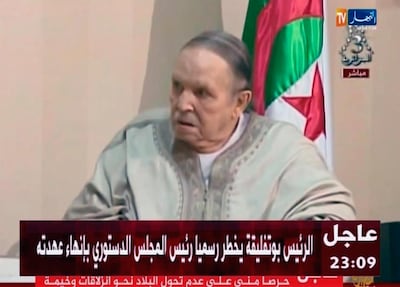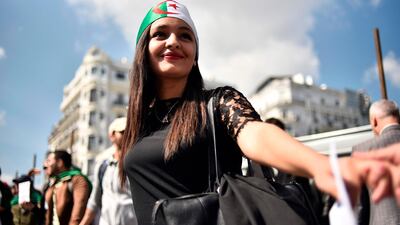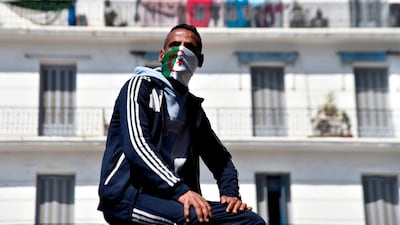Algerians are celebrating a new era in after the resignation of longtime president Abdelaziz Bouteflika after weeks of mass rallies against his rule, but the sweeping change protesters hoped for remains elusive.
They took to the streets on Tuesday to hail the resignation of Mr Bouteflika, 82, but protests look set to continue as his departure does not end a political system that angered them.
Algeria has largely avoided the turmoil unleashed by the Arab uprisings that brought down rulers in neighbouring Tunisia and Libya.
But discontent, particularly among the young, turned to anger after Mr Bouteflika announced in February that he would seek a fifth term in office in an election due this month.
Algeria's 12-member Constitutional Council was set to confirm Mr Bouteflika's departure on Wednesday after the ailing leader was shown on national television in a frail state handing in his resignation the day before.

The country's constitution says that when a president dies or resigns, the council confirms his absence and both houses of parliament convene.
The president of the upper house is named interim leader for 90 days while a presidential election is organised.
The upper house president is Abdelkader Bensalah, an ally of Mr Bouteflika ally, as is the Prime Minister Noureddine Bedoui.
Their positions will do little to ease the concerns of protesters, who want a more open, less corrupt political system.
Mr Bedoui is accused of contributing to fraud at the last presidential election in 2014, and of cracking down on past protests.
The US said the future of Algeria was in its own hands.
"Questions about how to navigate this transition in Algeria, that is for the Algerian people to decide," State Department spokesman Robert Palladino said.
Algeria has co-operated closely with the US and Europe against terrorism since it battled an insurgency in the 1990s.
Russian, a longtime ally and weapons supplier, called for a transition in Algeria without foreign interference.
"We expect that the processes happening in this country are exclusively the internal affair of Algeria will take place without the interference of any third countries," Kremlin spokesman Dmitry Peskov said.
Mr Peskov said Russia had "mutually beneficial, friendly relations" with Algeria and that they shared "many joint projects in the economic sphere".
Mr Bouteflika's decision to step down marked the turning of "an important page in the history of Algeria", said the French Foreign Minister, Jean-Yves Le Drian.
"We are confident in the ability of all Algerians to continue this democratic transition in the same spirit of calm and responsibility" that has prevailed in recent weeks, Mr Le Drian said.
In Sudan, the organisers behind months of anti-government demonstrations welcomed Mr Bouteflika's resignation and expressed hope that their president, Omar Al Bashir, would follow.
Mr Bouteflika's resignation is "a very positive achievement," showing the "success of peaceful resistance within Africa", Sarah Abdel Jaleel, a spokeswoman for the Sudanese Professionals Association, told AP on Wednesday.
Ms Abdel Jaleel said it "definitely gives us all hope and reassurance that we must continue".
The group of independent professional unions has led protests since December calling for Mr Al Bashir to resign after nearly three decades in power.
He has refused and has launched a heavy crackdown on dissent.










